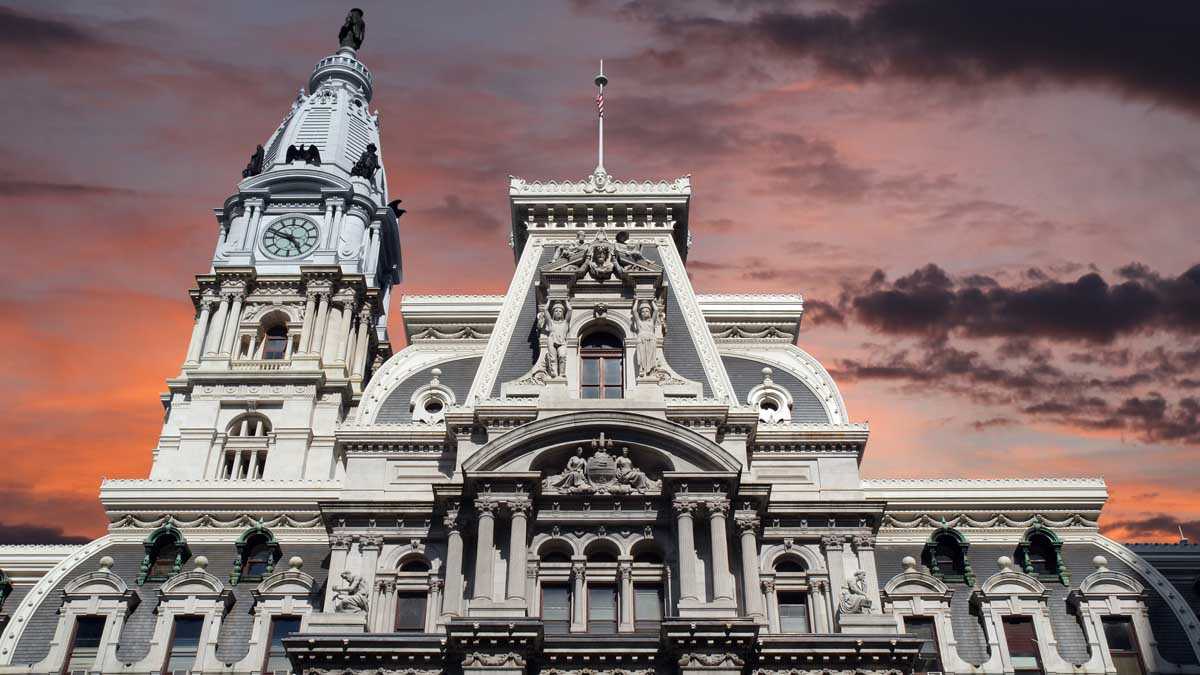UPDATED: Dark money group pulls the shades
Listen Photo via ShutterStock) " title="l_shutterstock_145628449-1" width="1" height="1"/>
Photo via ShutterStock) " title="l_shutterstock_145628449-1" width="1" height="1"/>
(Photo via ShutterStock)
The political committee of the self-styled reform group Philadelphia 3.0 spent a half million dollars on the City Council primary this spring, but if you want to know who funded the effort, you’re mostly out of luck.
The group spawned two organizations — Philadelphia 3.0, Inc., a nonprofit corporation that doesn’t disclose its donors and focused on issue ads, and Philadelphia 3.0 PAC, which supported candidates and filed reports showing its contributions and expenses.
But look carefully at the political committee’s post-election report, and you’ll see that $375,000 of the $521,000 it raised in 2015 — that’s 72 percent — came from its affiliated nonprofit, Philadelphia 3.0, Inc., which keeps its donors secret.
“It’s a form of dark money,” said John Dunbar, a campaign finance expert at the Center for Public Integrity in Washington. “It’s basically a way of disclosing without disclosing.”
Dunbar says this is a common practice of national political groups to keep their donors anonymous.Besides the $375,000 that Philadelphia 3.0, Inc., gave its political committee, the report also shows Philadelphia 3.0 PAC received a $40,068 contribution in March from the Philly Rising PAC, which was the original name for the Philadelphia 3.0 PAC.
UPDATE: In an earlier version of this story, I said I couldn’t find a 2015 report from Philly Rising PAC to account for that contribution. Turns out Philly Rising PAC did report that contribution the end of 2014, more than two months earlier than Philadelphia 3.0 reported receiving it.
The Philly Rising report does list its donors: Scanapieco Development Corp, and John Donnelly of Gladwynne. Each contributed $25,000.
Change for the better?
Can you be an agent for reform while taking big checks from donors who insist on doing it anonymously?
Officials of Philadelphia 3.0 declined to respond to any questions for this story.
It seems Philadelphia 3.0 was organized primarily by business leaders who want change, most prominently Parkway Corporation executive Robert Zuritsky. In a brief conversation, Zuritsky told me he wouldn’t be talking publicly about the effort.
But one thing I’ve been hearing in defense of the secret donors is that people in the business community are ready to fund change in City Council, but they’re worried about doing so publicly because they have financial interests the current Council can affect.
I heard this when I spoke to Alan Domb, the wealthy Realtor who won a seat on the Democratic Council ticket this spring.
“I think a lot of people are probably afraid of retaliation,” he said. “And that’s why they like the idea of donating to an independent expenditure like this and not having to give up their name.”
Domb, by the way, wasn’t endorsed by Philadelphia 3.0 He told me heard a rumor it was because he was too old.
Can they do this?
Is what Philadelphia 3.0 did legal?
The group is no doubt certain it is, but Dunbar notes there’s nothing in federal court rulings that prevent cities from requiring disclosure from nonprofit corporations like Philadelphia 3.0, and the city Ethics Board has said it expects such groups to disclose their donors.
Asked what they would do about 3.0’s activities, Ethics Board staff declined to comment.
Among the handful of donors to the Philadelphia 3.0 PAC that were disclosed are the Parkway Corporation, $25,000; Democrats for Education Reform, $25,000; Bryn Mawr attorney Leslie Ann Miller, $25,000; and Daniel DiLella, $10,000.
Did it work?
Was Philadelphia 3.0 effective in the primary? Three of the six Council candidates the group supported won party nominations — Terry Tracy, Derek Green and incumbent Maria Quiñones-Sánchez, though each had their own substantial bases of support.
Three others they supported — Paul Steinke, Isaiah Thomas and Tom Wyatt — lost.
Many in the city’s political community were fascinated by the emergence of Philadelphia 3.0, but several political operatives who didn’t want to criticize the group publicly said its print ads and mailings were too dense and confusing. They also said that Philadelphia 3.0 wasted a lot of money on general attacks on Council rather than focusing on races it could win.
“Certainly there’s room for an effort to inject some new energy and new blood into Philadelphia politics,” Democratic strategist Mark Nevins said. “The degree to which Philly 3.0 did that in 2015 is subject to some debate, but for the long term they have the potential to make an impact.”
Neil Oxman, the veteran media consultant who did the group’s TV spots, believes it had an impact on the primary, and that the issue ads are part of a strategy that will take some time.
“I think they’re looking at this as a long-term venture to try to get reform in government and to get some new blood in City Council,” Oxman said. “So they view this as being involved for some number of elections over a reasonably long period of time. You know, the journey of a thousand miles begins with a single step.”
WHYY is your source for fact-based, in-depth journalism and information. As a nonprofit organization, we rely on financial support from readers like you. Please give today.


